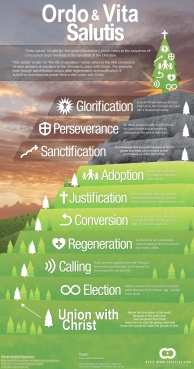 Speaking to the women at Surfside Presbyterian Church about the woman at the well in John 4, Callie Melton gives us an insightful look into how Jesus interacted with this woman’s heart – highlighting the beautiful grace of Christ that not only forgives our sin, but also covers our shame.
Speaking to the women at Surfside Presbyterian Church about the woman at the well in John 4, Callie Melton gives us an insightful look into how Jesus interacted with this woman’s heart – highlighting the beautiful grace of Christ that not only forgives our sin, but also covers our shame.
Category Archives: Gospel Thoughts
10 Behaviors of Genuine People Who Rest in the Gospel
 In John 1:35-51, we find Jesus calling his very first disciples. When meeting one disciple in particular – Nathanael – Jesus makes a surprising and bold declaration. He says, “Behold, an Israelite indeed, in whom there is no deceit!” Wow! What a statement. Jesus hasn’t even met Nathanael yet. But he knows him. He says that Nathanael is a “what-you-see-is-what-you-get” kind of Continue reading
In John 1:35-51, we find Jesus calling his very first disciples. When meeting one disciple in particular – Nathanael – Jesus makes a surprising and bold declaration. He says, “Behold, an Israelite indeed, in whom there is no deceit!” Wow! What a statement. Jesus hasn’t even met Nathanael yet. But he knows him. He says that Nathanael is a “what-you-see-is-what-you-get” kind of Continue reading
Hero Worship and the Mega-church
 America is a superhero driven culture. Have you noticed? Almost every movie, television show, and young adult book series is drenched in super-heroism. Think about this for a second. Batman, Superman, Captain America, Iron Man, The Avengers, The X-Men, Wolverine, Harry Potter, Arrow, Flash, Jim Gordon, Rick Grimes, Han Solo, James Bond, Katniss Everdeen, Jessica Jones, Superman, Thor, John Wayne, Clint Eastwood, The Hulk, Gandalf, Aragorn, Legolas, Frodo. The list could go on and on and on. Hero worship is definitely what makes America tick. And it doesn’t stop with Continue reading
America is a superhero driven culture. Have you noticed? Almost every movie, television show, and young adult book series is drenched in super-heroism. Think about this for a second. Batman, Superman, Captain America, Iron Man, The Avengers, The X-Men, Wolverine, Harry Potter, Arrow, Flash, Jim Gordon, Rick Grimes, Han Solo, James Bond, Katniss Everdeen, Jessica Jones, Superman, Thor, John Wayne, Clint Eastwood, The Hulk, Gandalf, Aragorn, Legolas, Frodo. The list could go on and on and on. Hero worship is definitely what makes America tick. And it doesn’t stop with Continue reading
You’re Killing Me Smalls: Four Toxic Brands of American Christianity
 In the 1993 film “The Sandlot”, a kid named Ham Porter continually gets frustrated with the immaturity of another kid named Scotty Smalls. When Ham’s frustration overcame him he would blurt out, “You’re killin’ me Smalls!” Now this phrase is commonly used in American slang to express discontent or frustration towards another person or event. Often times, I feel like Ham Porter when I observe American Christianity. In fact, I think that there are four toxic brands of American Christianity that often lead me to say, “You’re killin’ me Smalls!” Continue reading
In the 1993 film “The Sandlot”, a kid named Ham Porter continually gets frustrated with the immaturity of another kid named Scotty Smalls. When Ham’s frustration overcame him he would blurt out, “You’re killin’ me Smalls!” Now this phrase is commonly used in American slang to express discontent or frustration towards another person or event. Often times, I feel like Ham Porter when I observe American Christianity. In fact, I think that there are four toxic brands of American Christianity that often lead me to say, “You’re killin’ me Smalls!” Continue reading
Union with Christ in our Suffering
 When we suffer, our hearts put God on trial. Like a prosecuting attorney, we level our questions against his character. “How could you be good and allow this? If you could put an end to this, why don’t you? What have I done to deserve this?”
When we suffer, our hearts put God on trial. Like a prosecuting attorney, we level our questions against his character. “How could you be good and allow this? If you could put an end to this, why don’t you? What have I done to deserve this?”
Yet, for the Christian, God does not answer our questions with a logical defense of His sovereignty v. our suffering, but rather he answers us the way a mother comforts her crying child – with his presence. With his gospel song, Christ offers us the experiential affirmation of his union with us – reminding us that he loves us, and that he is here with us, and that he is bound to us in our pain. Continue reading
Jesus, Help me to do no Harm
 On June 21, 2015, after admitting to an extra-marital sexual relationship, Rev. Tullian Tchividjian announced his resignation as senior pastor of Coral Ridge PCA in Fort Lauderdale, Florida. This was devastating news for me. Over a number of years, Tullian’s teaching, along with Paul Tripp, Ray Cortese, John Frame, J.D. Greear, Matt Chandler, Joe Novenson, Tim Keller, John Piper, Scotty Smith, Nancy Guthrie, and Elyse Fitzpatrick, have all been refreshing gospel voices for my soul. Continue reading
On June 21, 2015, after admitting to an extra-marital sexual relationship, Rev. Tullian Tchividjian announced his resignation as senior pastor of Coral Ridge PCA in Fort Lauderdale, Florida. This was devastating news for me. Over a number of years, Tullian’s teaching, along with Paul Tripp, Ray Cortese, John Frame, J.D. Greear, Matt Chandler, Joe Novenson, Tim Keller, John Piper, Scotty Smith, Nancy Guthrie, and Elyse Fitzpatrick, have all been refreshing gospel voices for my soul. Continue reading
Drawing Near to God – Ebenezer Erskine
 This morning I was reading the “Beauties of Christ” by old Presbyterian Scottish pastor Ebeneezer Erskine who writes, “God, in his infinite wisdom, has devised a way how his banished people may be brought home again to his presence; and that is, through the blood and satisfaction of Christ… This (invitation) is to draw near to the throne of grace to which he has invited us to come with boldness, that we may obtain mercy, and find help in time of need…
This morning I was reading the “Beauties of Christ” by old Presbyterian Scottish pastor Ebeneezer Erskine who writes, “God, in his infinite wisdom, has devised a way how his banished people may be brought home again to his presence; and that is, through the blood and satisfaction of Christ… This (invitation) is to draw near to the throne of grace to which he has invited us to come with boldness, that we may obtain mercy, and find help in time of need…
Why Public Greeting is Vital in Christian Worship
 This morning I read an article forwarded to me by a friend entitled, “Those Who Really Don’t Like the ‘Stand and Greet Time’ in Church” (click here to read the article). The main emphasis of the article concerned first time church goers who do not want to be encouraged to talk to other people in the worship service. A large number of those people polled cited the “meet and greet” or “giving of the peace” element of Christian worship as socially uncomfortable and undesirable. Many said that they wished churches would do away with this tradition. I have just a few thoughts in response to the article. As I view it, the “greeting” or “giving of the peace” in a worship service is not just an aside, it is a vital part of Christian worship. In fact, the Bible is filled with passages that encourage the church toward love, relationship, fellowship, greeting, and welcoming. A few examples… Continue reading
This morning I read an article forwarded to me by a friend entitled, “Those Who Really Don’t Like the ‘Stand and Greet Time’ in Church” (click here to read the article). The main emphasis of the article concerned first time church goers who do not want to be encouraged to talk to other people in the worship service. A large number of those people polled cited the “meet and greet” or “giving of the peace” element of Christian worship as socially uncomfortable and undesirable. Many said that they wished churches would do away with this tradition. I have just a few thoughts in response to the article. As I view it, the “greeting” or “giving of the peace” in a worship service is not just an aside, it is a vital part of Christian worship. In fact, the Bible is filled with passages that encourage the church toward love, relationship, fellowship, greeting, and welcoming. A few examples… Continue reading
Vita Salutis – Pizza Infographic
 My friend Daniel Wells, Assistant Pastor at Hill City Church in Rock Hill, said that he really liked to think of the “Ordo Salutis” (which is latin for “the order of salvation) as a big pizza where all the slices point to and are connected to a big slice of pepperoni in the middle, which is the Christian’s Union with Christ. The logical order of each element found in the Ordo Salutis is indicated by a number. Union with Christ is central and vital to every element of salvation. Of course, the pizza graphic is for illustrative purposes only. Neither Daniel nor I should be held responsible if, after seeing this graphic, every time someone thinks of the order of salvation and union with Christ, they immediately salivate like Pavlov’s dog and subsequently pound an entire pizza from Domino’s. 🙂
My friend Daniel Wells, Assistant Pastor at Hill City Church in Rock Hill, said that he really liked to think of the “Ordo Salutis” (which is latin for “the order of salvation) as a big pizza where all the slices point to and are connected to a big slice of pepperoni in the middle, which is the Christian’s Union with Christ. The logical order of each element found in the Ordo Salutis is indicated by a number. Union with Christ is central and vital to every element of salvation. Of course, the pizza graphic is for illustrative purposes only. Neither Daniel nor I should be held responsible if, after seeing this graphic, every time someone thinks of the order of salvation and union with Christ, they immediately salivate like Pavlov’s dog and subsequently pound an entire pizza from Domino’s. 🙂
(Click Picture to view in high resolution)
Vita Salutis (The Life of Salvation) – Infographic
 The “Ordo Salutis” is latin for “the order of salvation,” which refers to the logical sequence of conceptual steps involved in the salvation of the Christian. (Romans 8:28-30, Ephesians 1:1-14)
The “Ordo Salutis” is latin for “the order of salvation,” which refers to the logical sequence of conceptual steps involved in the salvation of the Christian. (Romans 8:28-30, Ephesians 1:1-14)
The “Vita Salutis” is latin for “the life of salvation,” which refers to the vital or ‘living’ connection of each element of salvation to the Christian’s union with Christ. For example, even though sanctification occurs after regeneration and justification, it is built on and receives power from a vital union with Christ. (John 15:1-11, Colossians 1:15-20, 2 Peter 1:3)
(Click Picture to view in high resolution) ______________________
Pastor Sammy Davies gives a great account of how the Ordo Salutis should relate to our Union with Christ. He says, “(It may best) to understand the ordo as taking place within the union. It is almost as if union with Christ is introduced as a new stage in the ordo salutis, but is perhaps better thought of as, “the dominant motif in any formulation of the application of redemption and dominate feature of any “order” of salvation.” The ordo salutis takes place in union much like a fish resides within water.
Robert Letham expresses this understanding of union with Christ as “the foundation of all the blessings of salvation. Justification, sanctification, adoption and glorification are all received through our being united to Christ.” Furthermore, “The whole process of the application of salvation to us by the Holy Sprit (what has been known as ordo salutis – the order of salvation) fits in here as part of what it means to be united with Jesus Christ.” Essentially union with Christ isn’t actualised (in the life of the believer) until the Holy Spirit works faith and repentance in a believer. Perhaps one difficulty associated with this stance is a relegation of the distinctiveness of union. (One) must be very careful to not simply reduce union to a mere additional stage in the ordo, but (also) maintain it’s altogether different nature.”
Pastor Davies’ full article is found at: http://saintbeagle.wordpress.com/papers/ordo-salutis-and-union-with-chirst/
The Emptiness of Dark Purposes
People need purpose. We need meaning. In order to give shape and direction to our lives, we need to have an aim, a goal, a direction. However, the purposes that we often embrace are not all the same. Some purposes might be self-giving, while other are self-absorbing. They may be creative or destructive, nourishing or poisonous, full of light or full of darkness. Unfortunately, many of us choose destructive paths. We embrace a life that is fueled by anger, or greed, or jealousy, or revenge. We cling to dark purposes. In the movie, The Princess Bride, there is a character named Inigo Montoya. When we meet him in the movie, we find him in a lifelong quest to take revenge on a “six fingered man” for murdering his father. Though Inigo is one of the most comical characters in the story, he is also one of the most tragic. When he finally gets his revenge at the end of the story, Inigo finds that his life is empty. He says, “I have been in the revenge business so long, now that it’s over, I do not know what to do with the rest of my life.” This is how it is for all those who shape their lives around dark purposes. Even when we are successful, we will find that the victory will be empty. Our hearts will be shriveled and toxic. Our lives will be lonely and dark. In the end, we will wind up like Gollum in the Hobbit, whom Tolkien refers to as “a small, slimy creature.”
I don’t want to wind up like Gollum. I don’t want to be consumed by dark purposes that rot my heart and eat up my life. “Spirit of Christ, rescue me from my ‘dark purposes.’ Form me in the image of Christ. Restore the joy of your Kingly rule over my life. Along with all those who trust in You, restore my trust in the gospel that I might be creative, nourishing, and filled with the light of Christ fueled love.”
Jesus loves the Little Children
 This summer Christ has given me and my family the great privilege of being engaged in something that we really enjoy and still feel a great passion for: spending time and sharing the gospel with kids. Earlier this year, Justin Woodall and I were asked to go to Elevate, our annual high school retreat that is held at Covenant College in Chattanooga, TN. I jumped at the opportunity. Even though I have been out of youth ministry for eight years now, I still very much love students and I have a passion for sharing the gospel with them. When the week arrived, we had almost 40 students who were signed up for the conference. Wow! During the week I was overjoyed to see Christ at work in the lives of so many students and leaders as they responded to the gospel in powerful ways. It was amazing! A week after we returned from Elevate, my wife Martha Jo was privileged to go as a counselor to Kulaqua (pronounced: “Kuh-lah-kwah”), our annual middle school retreat in Florida. From all reports, that was also an incredible retreat where the Spirit of Christ moved powerfully in the lives of middle school students. Martha Jo was so encouraged! Charlie and DJ Phillips, our Youth Director and his wife, along with our youth leaders, did a remarkable job preparing the students, parents, and our church for these two very special weeks. Continue reading
This summer Christ has given me and my family the great privilege of being engaged in something that we really enjoy and still feel a great passion for: spending time and sharing the gospel with kids. Earlier this year, Justin Woodall and I were asked to go to Elevate, our annual high school retreat that is held at Covenant College in Chattanooga, TN. I jumped at the opportunity. Even though I have been out of youth ministry for eight years now, I still very much love students and I have a passion for sharing the gospel with them. When the week arrived, we had almost 40 students who were signed up for the conference. Wow! During the week I was overjoyed to see Christ at work in the lives of so many students and leaders as they responded to the gospel in powerful ways. It was amazing! A week after we returned from Elevate, my wife Martha Jo was privileged to go as a counselor to Kulaqua (pronounced: “Kuh-lah-kwah”), our annual middle school retreat in Florida. From all reports, that was also an incredible retreat where the Spirit of Christ moved powerfully in the lives of middle school students. Martha Jo was so encouraged! Charlie and DJ Phillips, our Youth Director and his wife, along with our youth leaders, did a remarkable job preparing the students, parents, and our church for these two very special weeks. Continue reading
Gospel Thought: Christianity is a Relationship!
 When I was a younger Christian and Student Minister, I would often emphasize to my students over and over again that “Christianity is a relationship.” Strangely, that was not always a popular thing to say. In fact, I was often criticized by older pastors who warned me against saying such a thing because it was pietistic, mystical, and based on emotion rather than the firm foundation of scripture. This always confused me. Everything I read in scripture seemed to say the same thing. In fact, the gospel of John seems to bleed that truth out in every single word.
When I was a younger Christian and Student Minister, I would often emphasize to my students over and over again that “Christianity is a relationship.” Strangely, that was not always a popular thing to say. In fact, I was often criticized by older pastors who warned me against saying such a thing because it was pietistic, mystical, and based on emotion rather than the firm foundation of scripture. This always confused me. Everything I read in scripture seemed to say the same thing. In fact, the gospel of John seems to bleed that truth out in every single word.
- “The Word became flesh and dwelt among you.”
- “I am the good shepherd; I know my sheep and my sheep know me— just as the Father knows me and I know the Father.”
- “(I pray) that they may all be one, just as you, Father, are in me, and I in you, that they also may be in us.”
- “For God so loved the world, that He gave us His only Son…”
Gospel Thought: Laughter, Music, Heaven and Mocking the devil
Over the course of my Christian life, I have discovered that there is always something to worry about. Worries, like weeds, choke all of the joy out of life. Idols of “control” and “manipulation” possess our thoughts. We stress out about our government, our family, our finances…it really doesn’t take much to get us going. We put ourselves in a prison of worry, while the evil one, the devil (I refuse to capitalize his name – he’s not worth it), does all that he can to rattle our cage. A couple of days ago I compiled a few quotes that are helping me to regain some perspective. I sense the Holy Spirit reminding me that one of the ways that I should hide myself in the gospel is by enjoying the life that Christ has given me. Out of a sense of worshiping Christ, I need to listen to good music, laugh with good friends, and give my life in service to others. As theologian Eugene Peterson puts it, I need to learn “to care, and not to care.” Below are few of the quotes I’ve read that are helping me with this endeavor. Martin Luther has been especially helpful.
- The best way to drive out the devil, if he will not yield to texts of Scripture, is to jeer and flout him, for he cannot bear scorn. — Martin Luther
- If you are not allowed to laugh in heaven, I don’t want to go there. –Martin Luther (1483-1546)
- It is pleasing to God whenever you rejoice or laugh from the bottom of your heart. –Martin Luther (1483-1546)
- Beautiful music is the art of the prophets that can calm the agitations of the soul; it is one of the most magnificent and delightful presents God has given us. –Martin Luther (1483-1546)
- Nothing on earth is so well-suited to make the sad merry and the merry sad, to give courage to the despairing and to make the proud humble, to lessen envy and hate, as music. — Martin Luther
- Music makes people kinder, gentler, more staid and reasonable. The devil flees before the sound of music almost as much as before the word of God. — Martin Luther
- Blessed are you who weep now, for you will laugh. — (Luke 6:21)
- “Rejoice in that day and leap for joy, because great is your reward in heaven” — (Luke 6:23).
- C. S. Lewis depicts laughter in Heaven when his characters attend the Great Reunion on the New Narnia: “And there was greeting and kissing and handshaking and old jokes revived (you’ve no idea how good an old joke sounds after you take it out again after a rest of five or six hundred years).” — C.S. Lewis, The Last Battle
- Father, today, right now, feeling as I do, with deadlines and health issues and friends who are hurting and world events in flux, I need to hear your promise that in Heaven we will laugh. I picture Jesus, laughing with his disciples, and I can’t wait to hear his laugh in person. I look forward to laughing with him at banquets and on walks and in conversations. Thank you for the gift of laughter. Thank you that you invented it. Thank you that we do not have to wait until Heaven to laugh, but that laughter can carry us on its back through difficult times. I think of the release that laughter brings at memorial services for people who have followed you faithfully, people who are already laughing on death’s other side. I have enjoyed rich laughter, mingled with tears, with friends and family in difficult days. When we weep now, Father, remind us that in Heaven, partaking of your joy, we will laugh. — Randy Alcorn
- In early Christian Greek tradition, Easter Monday was a “day of joy and laughter,” called Bright Monday. Only the followers of Christ can laugh in the face of persecution and death because they know that their present trouble isn’t all there is. They know that someday they will laugh. — Randy Alcorn
Preaching the Gospel to Yourself Everyday
Preach the Gospel to Yourself Everyday…
* Check out the comments section of this post. There are some pretty good thoughts offered by Rev. Jason Van Bemmel and Amy Hauck.
Several years ago I attended a Christian conference that powerfully changed my perspectives on the gospel. This conference, which addressed the Christian’s “Sonship” and adoption in Christ, was offered through the ministry of World Harvest Mission. It was here that I learned that the gospel was more than a “front door” to the Christian life, but was in fact, the very heart-beat of Christianity. From that point on I have grown more and more in my understanding of the vital and essential nature of the centrality of Christ and the ongoing need I have of the gospel in my Christian life. I have also learned the importance of “preaching the gospel to myself everyday”. I first heard this phrase during that Sonship week in Chattanooga over 15 years ago. This was a phrase that was introduced by Dr. Jack Miller of World Harvest and popularized by Jerry Bridges in his books “Discipline of Grace”, “The Transforming Power of the Gospel”, and “The Gospel for Real Life.” The perspectives of these men along with Dr. Timothy Keller and the good folks at the CCEF Christian counseling foundation, have revolutionized my walk with Christ. They have blessed me with a perspective of ongoing Christ dependence by which I am able to experience the deep mercies and love of Christ, even in the midst of my ongoing battle with sin. They have helped me to understand my sin as heart idolatry and encouraged me to engage in repentance that aims at authentic worship of Christ and not mere behavior modification. They have helped me to understand that even though I am more messed up and evil than I would have ever thought possible, I am also more loved than I could ever dare to believe. They have taught me to preach the gospel to myself every day. Much thanks to these beloved men and women of the gospel.
Unfortunately, there are number of preachers and teachers who oppose the teaching of Gospel centrality. (If you would like to read one such unfortunate critique, you can do so by clicking HERE.) The opposition says that the idea of “preaching the gospel to yourself” is unhealthy and unbiblical for the “normal” believer and should only be reserved for those who are very weak and immature in their faith. If this is true, then count me among the weak and immature crowd. Count me as one who needs more than one Sunday morning Gospel reminder per week. Count me as one who needs gospel reminders every day…every minute. Count me as one who needs Jesus today, more than I needed Him yesterday. Count me as one who is a foolish person that God has gracefully chosen to shame the strong and wise (I Cor 1:27).
To those who criticize, I would plead with you to consider that the idea of “preaching the gospel to yourself every day” is a vital Christian practice. It is a simple encouragement for the believer to continually turn to the Savior in renewed repentance and faith. It is not a so called “return” to justification. No. It is a dance with Christ that is learned upon the “foundation” of Justification. It is knowing that my house was built upon the rock of Christ’s Love yesterday and continues upon that rock today. It is being reminded of the gentle nature of Christ who says “Come unto me…”. It is a daily reminder of my pride, but Christ’s humility; my shame, but His glory; my wretchedness, but His power; my eternal need, but His infinite provision.
We who preach the gospel to ourselves, do so because we forget the gospel so easily. We preach the gospel to ourselves because our faith is weak, and will continue to be so, but the Eternal Object of our puny faith is not weak, but gloriously powerful. We preach it because the Magnificent Savior who rescued me the hour I first believed is the very same Savior who rescues me this very moment. We preach the gospel to remind ourselves that we are foolish and vacuous and supercilious and that using words like vacuous and supercilious is vacuous and supercilious. We preach the gospel to ourselves because we believe that we are cunning beyond our knowing; and that we would take the very things of God – the Word, the table, the church, and the waters of baptism – and use them to harden our hearts against the Blessed Caretaker of our souls. We preach the gospel to ourselves because when Christ is lifted up, the affections of our hearts are drawn to Him and lifted out of the squalor of idolatry, especially religious idolatry, which is the insidious friend of every pastor and every seasoned believer. We do so because without the good graces that come through continual preaching of the gospel to ourselves, our hearts would become a notorious factory of idols, producing more errant thoughts and behaviors than we could ever hope to harness.
Finally, we preach the gospel to ourselves every day for the same reasons that gospel preachers preach it to us every Sunday morning – so that by the foolishness of preaching it, the Holy Spirit might equip us for every good work; and so that the Spirit-filled, Gospel-saturated, Biblical exposition and application of God’s word will speak to our hearts, drawing us to the Savior in a way that renews repentance and deepens our worship.
We preach it because it is the truest and bestest news that our starving hearts have ever known – that we are indeed more messed up and sinful than we know, and we are more loved than we could ever dare to dream.
* Check out the comments section of this post. There are some pretty good thoughts offered by Rev. Jason Van Bemmel and Amy Hauck.
A Symbol for my Life: A Dance around the Cross
 Someone recently asked me, “Tim, if you were to choose a symbol for your life, what would it be and why?”
Someone recently asked me, “Tim, if you were to choose a symbol for your life, what would it be and why?”
This is the symbol I would use. Christ has taken residence at the center of my life. The grace of God, through the gospel, is what empowers my life. This grace is leading me to a maturing dependence on Christ as my Lord and Savior. The ultimate aim that Christ has for my life is not personal perfection or external compliance or communal belonging. The aim is Christ dependence. This Christ dependence is expressed through repentance and faith. Repentance and faith (continually coming back to the Gospel) produces a Christ-likeness that is matured in my affections, my understanding, and my obedience. My life is being tailored by the Spirit of God to be a dance around the cross. The Spirit will continue this work of grace until at last I behold my Savior face to face.
God is a Dynamic Dance of Three Divine Persons
 And that, by the way, is perhaps the most important difference between Christianity and all other religions: that in Christianity God is not a static thing– (
And that, by the way, is perhaps the most important difference between Christianity and all other religions: that in Christianity God is not a static thing– (not even a person–but a dynamic, pulsating activity), (but a dynamic, pulsating activity of three persons, who together comprise a perfectly glorious and loving divine life that is) almost a kind of drama. Almost, if you will not think me irreverent, a kind of dance.” (C. S. Lewis, Mere Christianity, p. 152, my strike through and addition)
In keeping with my thoughts on Gospel Life as a circle dance around Christ, I thought I would post this good quote by C.S. Lewis. However, I do wish he had worked on his thought just a bit more. When he says that God is not a static thing I want to shout “Yes!” But then, in his efforts to improve that thought, he says that God is “not even a person.” I think he goes off the biblical map here. It’s as if he says, “God is not a static thing, He’s a dynamic thing.” The movement from static to dynamic is good. That he leaves God as a “thing” or “pulsating activity” is not so good. I re-wrote the quote the way I wish Lewis had written it.
The Gospel is the Hub
 The gospel is not just the ABCs of Christianity, it is the A-Z; it is not the first step in a stairway of truths, it is more like the hub of God’s wheel of truth. 1
The gospel is not just the ABCs of Christianity, it is the A-Z; it is not the first step in a stairway of truths, it is more like the hub of God’s wheel of truth. 1
Christians often think of the Gospel as the beginning of the Christian faith. As Tim Keller puts it, they see the gospel as the “first step” in a stairway of spiritual growth. But this is not a biblical picture of the gospel. Keller says that the gospel is “the hub of God’s wheel of truth.” Adding to this thought, J.D. Greear adds, “The gospel is not the diving board off of which we jump into a pool of Christianity, the gospel is the pool itself. That’s why growth in Christ is never going beyond the gospel, but going deeper into it.” 2
The gospel is the heart of Christianity. It is the center by which the Christian’s spiritual life flows into and out of Christ. We never grow away from this central reality. We never grow away from the cross. As Martin Luther said, spiritual progress is “always to begin again.” 3 The Christian should never grow weary of dancing around Jesus as the Lord of all things. The gospel is not the beginning of Christianity, the gospel is the hub by which everything else holds together.
____________________________________
1 J.D. Greear, Gospel: Recovering the power that made Christianity Revolutionary, (Nashville: B&H Publishing, 2011), 21.
2 Ibid., 22.
3 Martin Luther, The Sermons of Martin Luther, vol. VI (Grand Rapids: Baker, 1983), 146.
Gospel Thought: More Jesus
“We don’t need fewer trials, we need more Jesus.” – Justin Woodall
Justin Woodall is a fellow pastor and colleague at Surfside Presbyterian Church. A couple of days ago while we were talking, Justin said, “You know man, we don’t need fewer trials, what we need is more Jesus.” So true. Later Justin wrote a post on this thought. Click here to give it a read.
Gospel Thought: Worship is recognizing and bowing before the value of God
Worship is not primarily ascribing ultimate value and lordship to God. Worship is recognizing the ultimate value that God already possesses and bowing before the lordship that God already has.
During this spring season many of our people at Surfside PCA are going through the small group material “Not a Fan.” This is a great study that puts emphasis on being a “follower” of Christ and not just a distant spectator. This great study strikes at the very heart of what it means to worship God. Worshipping God is not simply ascribing worth to Him and then walking away. Worship “sees” the splendor of God’s value and is moved to joy. Worship doesn’t say that “Christ is Lord” because it intellectually adds up or because everybody else says so. Worship says Christ is Lord because it sees Christ’s scars and beholds Christ’s glory. Worship does not simply know about the Cross, worship kisses the Cross of Jesus and finds comfort only in its shadow.

